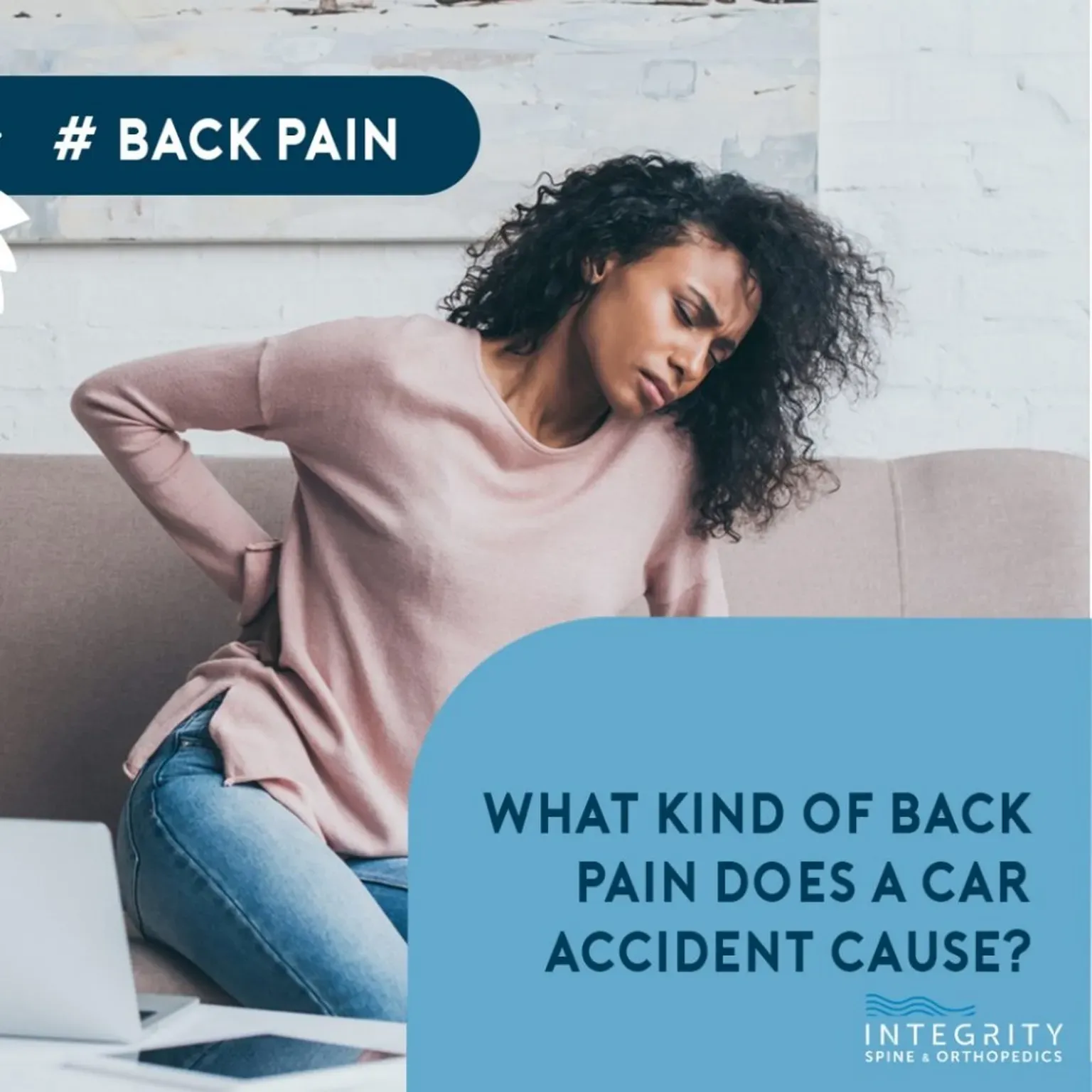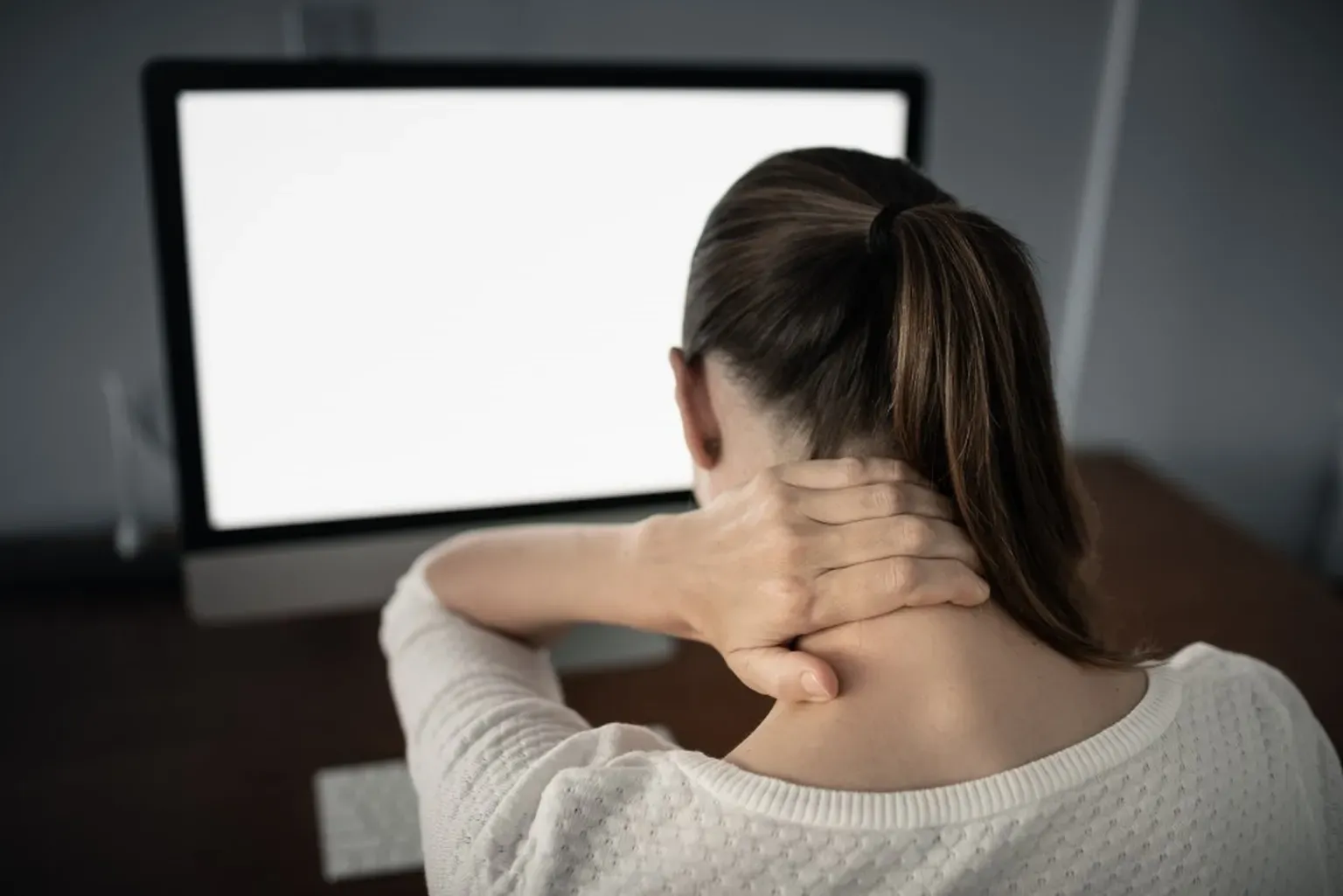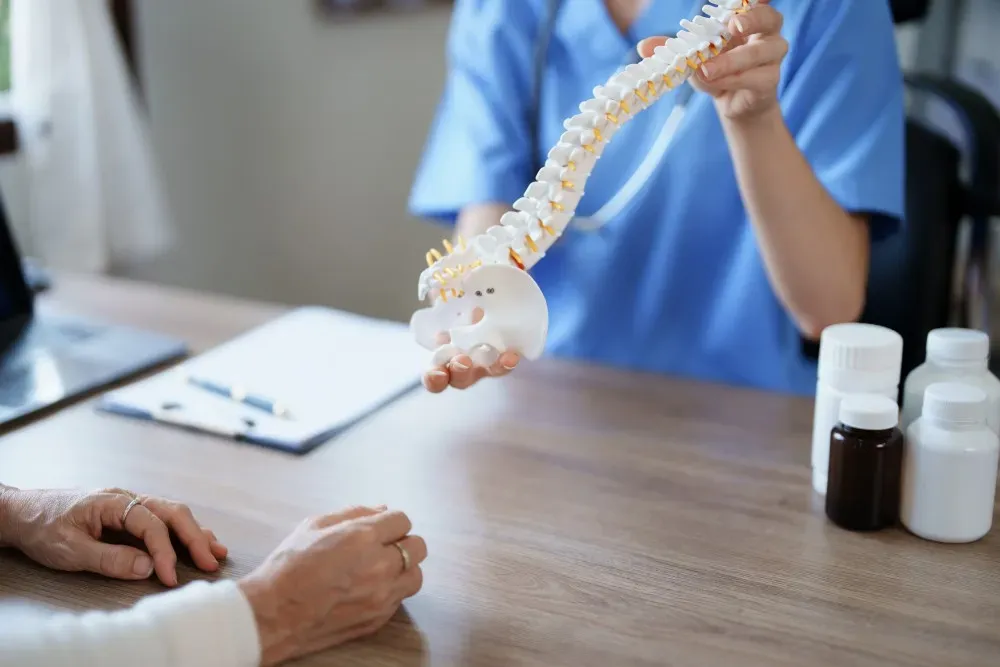Neurosurgery & Orthopedic Surgeons in Jacksonville

What Kind of Back Pain Does a Car Accident Cause?
Consider this: sleeping in a strange position, lifting a box that’s a little too heavy, dancing in the kitchen…..all of these everyday activities have the potential to cause a back injury.
WHAT KIND OF BACK PAIN DOES A CAR ACCIDENT CAUSE?
Consider this: sleeping in a strange position, lifting a box that’s a little too heavy, dancing in the kitchen…..all of these everyday activities have the potential to cause a back injury. Now imagine how much more force is exerted against the back and spine during a high-impact car crash. It’s no surprise that back pain is a leading complaint following a car accident, especially acute low back pain and cervical spine (neck) pain.
Keep reading to learn more about the types of back pain you may experience after an accident, and when it’s time to see a doctor.
WHAT CAUSES BACK PAIN AFTER A CAR CRASH?
A car crash exerts a tremendous amount of force on your back and spine, and back injuries are incredibly common after a high-impact accident. Here are some of the most common injuries that cause back pain symptoms.
- Whiplash. Whiplash is the most common car crash injury. It occurs when the rapid, back-and-forth movement of the head and neck upon impact causes damage and tearing to the tendons, ligaments, muscles, nerves, bones and discs in the cervical spine. Whiplash can cause significant pain in the neck, upper back and lower back.
- Sprains and strains. Lumbar spine sprains and strains are another common back injury following a car accident. The force of impact can cause the muscles, tendons and ligaments in the lower back to overstretch or tear. Sprains and strains usually lead to acute low back pain, tightness and muscle spasms.
- Spinal disc damage. The spine has 23 discs that sit between vertebrae and provide cushioning and support. A traumatic accident like a car crash can damage or displace one or more discs. Common injuries include bulging discs (when a disc shifts out of place and bulges into the spinal canal), annular tears and herniated discs. An annular tear occurs when a crack forms in a disc’s tough outer ring of ligaments. Annular tears cause localized pain and inflammation around the damaged disc. When a tear causes the inner, jelly-like nucleus of a disc to leak into the spinal canal, the condition is called a herniated disc. Bulging, torn or herniated discs might also cause nerve pain if a disc fragment presses against or irritates nearby spinal nerves.
- Joint injuries. A high-impact car crash can injure the facet joints that connect the vertebrae in your spine. Facet joint pain typically causes low back pain, inflammation and stiffness.
After a car accident, remain alert for delayed symptoms of back injuries. During a traumatic event, your body releases a massive adrenaline rush that may mask normal pain signals directly following a crash. Even if you feel fine immediately after the accident, see a doctor if you develop pain and symptoms over the next several days, weeks or even months.
SIGNS AND SYMPTOMS
You’ll probably feel sore and achy for a few days after a car accident — that’s completely normal. However, you should monitor yourself carefully for abnormal pain or sensations. Here are the signs and symptoms you should be on the lookout for following a car crash. Experiencing any or all of the following could indicate a serious back injury that requires medical care.
- Soft tissue injury. Soft tissue injuries may cause back pain, tightness, pinching, and muscle spasms. You might experience loss of normal movement and pain that worsens with activities like lifting, bending or twisting.
- Nerve injury. Sciatica is a common set of symptoms that develops when a bulging or herniated disc compresses nerves in the lumbar spine. Sciatica is a type of nerve pain that causes one-sided pain, numbness, tingling and weakness in the low back, buttock, leg and foot.
Too many people ignore the signs and symptoms of a back injury after a car crash and assume lingering back pain will resolve on its own within a few days. However, even a minor, acute back injury has the potential to cause chronic pain and degenerative changes in the spine if left untreated. Even if you feel OK after an accident, consider getting a medical checkup for safety’s sake.
HOW TO TREAT ACCIDENT-RELATED BACK PAIN
If you’re experiencing acute low back pain after a car accident, see a doctor for a check up and evaluation. With proper care, many back injuries resolve within a few weeks to months. While you should take time to rest and recover after an accident, avoid remaining immobilized or on bed rest for longer than a few days. Prolonged immobilization can slow down the healing process and increase pain and stiffness. Instead, your doctor may prescribe a treatment plan that includes the following:
- Medications. Over-the-counter, anti-inflammatory medications like ibuprofen and naproxen can help relieve pain, swelling and inflammation after an accident. If you’re having episodes of severe pain or muscle spasms, your doctor may prescribe a stronger anti-inflammatory medication or muscle relaxants.
- Heat and ice. For the first few days after a car crash, applying ice packs several times a day can help reduce pain, swelling and inflammation. After a few days, applying heat packs can help soothe and unknot tight, tense muscles. You can alternate between the two if that feels comfortable.
- Injections. If you have a pinched nerve or inflammation in the spine, a corticosteroid injection can reduce pain and inflammation around irritated nerve roots or inflamed soft tissues. Corticosteroid shots are temporary, but they can provide pain relief for several days, weeks, or months, giving your body time to heal.
- Physical therapy. Physical therapy can help you regain strength, range of motion and movement in your back and spine after an accident.
- Movement. Too much rest has a negative effect on the healing process. With your doctor’s approval, move as much as you’re able. Light, low-impact exercise can help reduce pain and inflammation, strengthen muscles and joints, and prevent stiffness. During the day, walk and stretch regularly instead of sitting for long periods of time. Don’t push yourself too hard at first — talk to your doctor to find a level of activity that works for you.
If you continue to have pain and decreased movement after several weeks of taking medications and going to physical therapy, you may need surgery. Surgery is recommended if you have an identifiable injury — like a pinched nerve or herniated disc — and conservative treatment options haven’t been effective.
At Integrity Spine and Orthopedics, we perform minimally invasive spine surgeries to treat pain and loss of movement caused by car accident injuries like a compressed nerve and bulging or herniated disc. Our minimally invasive procedures are performed on an outpatient basis in the ambulatory surgery center (ASC) setting. Compared to traditional back surgery, minimally invasive surgery requires smaller incisions, causes less muscle and tissue damage, and has a shorter recovery and rehabilitation period.
INTEGRITY SPINE AND ORTHOPEDICS TREATS CAR ACCIDENT INJURIES
A back injury can put you out of commission for weeks or months. We recommend contacting Integrity Spine and Orthopedics as soon as possible if you’ve been in a car accident and have back, neck or soft tissue pain and symptoms. Our board-certified orthopedic surgeons specialize in pain management, general orthopedics and minimally invasive spine surgeries to treat a wide range of spine, muscle and joint conditions caused by car crashes. The sooner we get you started on the right treatment plan, the sooner you’ll be back on your feet and doing the activities you love.
Call us today at 904-456-0017 or fill out an online contact form to schedule an appointment.




